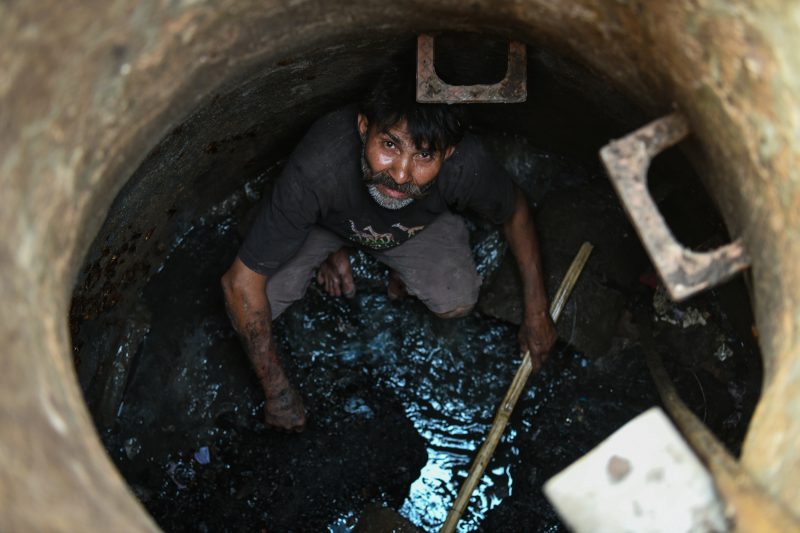Seven die cleaning Indian hotel septic tank: police
Hundreds of thousands of mostly low-caste Indians are employed as ‘manual scavengers’ who clear underground pipes and septic tanks without any protective gear or masks (CHANDAN KHANNA)
Ahmedabad (India) (AFP) – Seven people have suffocated to death while cleaning a hotel septic tank in western India without safety gear, police said Saturday.
The hotel owner has been charged with causing death due to negligence following the incident Friday night in Gujarat state’s Vadodara district, a police official said.
Four of those who died had been called to clean the tank while three others were hotel employees who were assisting.
Hundreds of thousands of mostly low-caste Indians are employed as “manual scavengers” who clear underground pipes and septic tanks without any protective gear or masks.
“One person first entered the tank, but when he did not come out and did not respond to calls, three other cleaners went inside to help him,” said Vadodara fire officer Nikunj Azad who was leading the rescue operations.
When all four did not emerge after some time, the three hotel employees entered the tank, all seven of them losing their lives in the process, Azad added.
“Their bodies have been brought out and sent for postmortem,” he said.
Deaths from asphyxiation in sewers full of noxious gases are frequently reported across the country.
Last year five people died in New Delhi while cleaning a sewage treatment tank.
Indian legislators have passed several laws aiming to stamp out the age-old practice of manual scavenging, the latest in 2013.
But many scavengers are still used through sub-contractors, making it difficult for authorities to fix responsibility.
In rural areas, women “scavengers” clean out primitive non-flush toilets with basic tools, although the practice is now on the wane.
There is no official data but independent surveys indicate that some 1,370 lose their lives every year during the hazardous work.
Disclaimer: Validity of the above story is for 7 Days from original date of publishing. Source: AFP.


